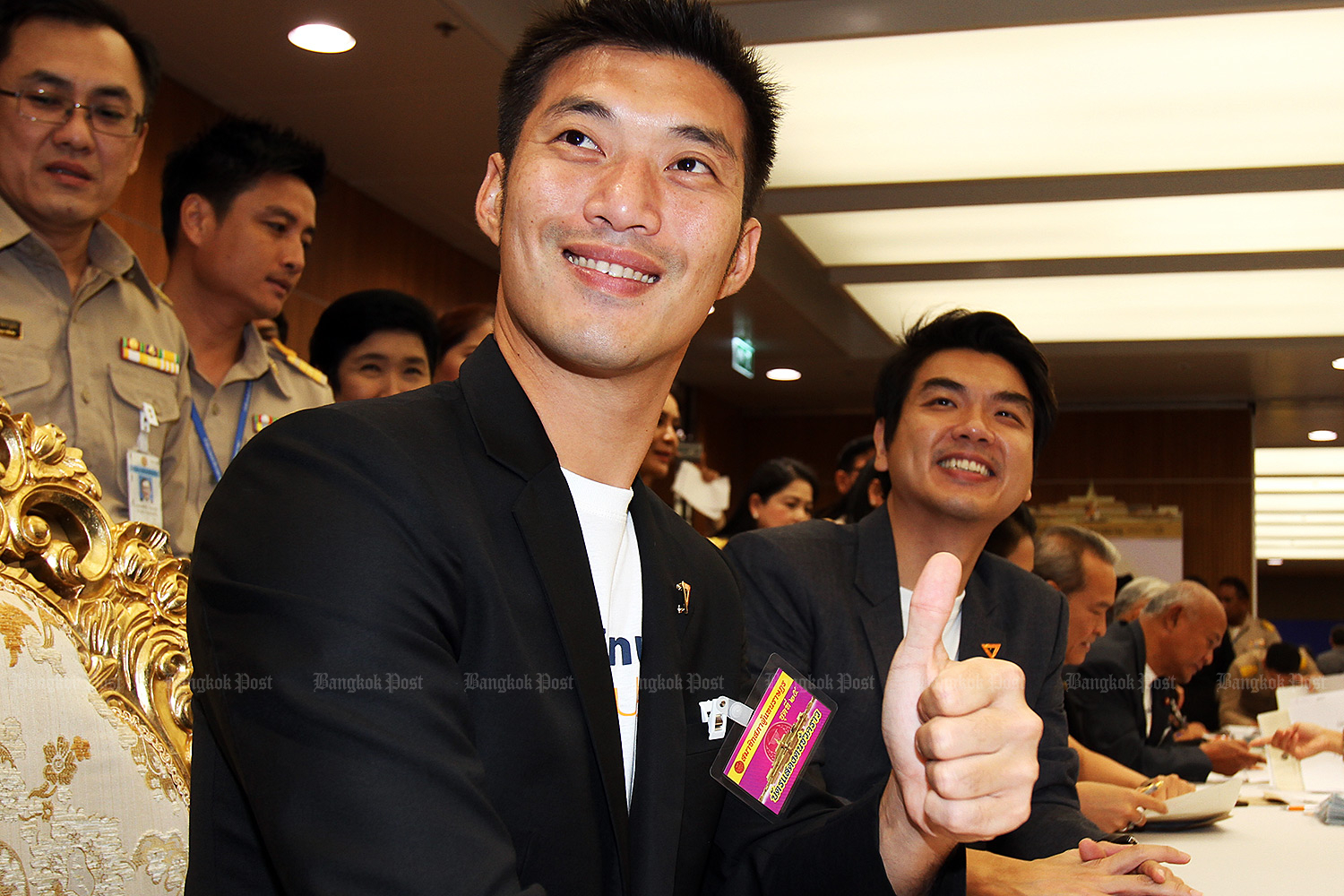
Future Forward Party (FFP) leader Thanathorn Juangroongruangkit appears to be a man in a rush and a man who enjoys controversy.
Remember when, not long ago, he suggested that Thais should stop addressing those who are more or less senior in terms of age as brother, sister, auntie or uncle because that indicates a seniority system which leads to those who are junior in "rank" being afraid about expressing their views. He said three words in Thai are enough to address one another -- khun, phom, dichan (or you and me in English), adding that this should start in his party first before it spreads to the public.
Last week, Mr Thanathorn praised a group of students at Chumpholphonphisai School in Nong Khai province who designed floral displays on pedestal trays in the unorthodox shapes of a tank, a democracy monument and an imbalanced scale. They paid respect to their teachers by making a political statement in support of democracy and against the junta.
At the same time, he blasted the military and police for harassing the students for their political views without even bothering to find out whether it was true or not.
His support of the students for championing their democratic rights is not surprising. However, he stirred up controversy by suggesting the wai khru ceremony -- which takes place every June -- is obsolete and a symbol of feudalism which should be phased out and not enforced on students in schools.
As anticipated, the seemingly harmless issue of an unconventional display of flower arrangements at a northeastern school has amplified the debate into a war of rhetoric on social media between pro-Thanathorn supporters and the conservatives.
Both sides think they are right and have reasons to back their stand.
The wai khru ceremony has been practised from time immemorial in many professions or occupations, such as Thai boxing or khon mask dance, in which the performers demonstrate their wai khru on stage, before a fight or performance.
The traditional ritual is meant to pay respect or show gratitude to teachers. Even if the tradition is obsolete, its intentions are noble. It may be difficult for someone who has no connection to their past to understand and appreciate this fact.
Mr Thanathorn may be right that the ritual should be optional and not forced upon all schools because there are some teachers who do not deserve respect and are not fit for the wai khru, such as those who cheat their students' lunch fund.
Paying respect to teachers is no different from paying homage to our ancestors with incense sticks and candles before their portrait on an altar, as is done in Chinese families. Is that regarded as a symbol of feudalism too? Should it also be dumped?
While the students were commended on their creativity for their unconventional floral displays, should they be told to think of other elements, such as appropriateness?
Is making a political statement appropriate as a way to show respect and gratitude to their revered teachers in the wai khru ceremony? If the answer is yes, what about making a political statement at a funeral with a wreath made in the shape of the democracy monument with red roses?
Young minds can easily be manipulated and exploited. That is why warlords in Africa use child soldiers and why young men and women are trained as suicide bombers.
Creativity is fine. But promoting creativity without the wisdom to judge what is right or wrong is like putting a knife in the wrong hand.
There are two sides to a coin and it has always been that way. There are two worlds in Thai society -- the old and the new. In the end, his world will triumph, according to Mr Thanathorn.
It is not necessary for things to be that way. The two worlds can co-exist and must try to even though they are still bickering. The real enemy of both the conservatives and the likes of Mr Thanathorn, who want quick changes to Thai society, are the corrupt politicians and officials.
Veera Prateepchaikul is former editor, Bangkok Post.
